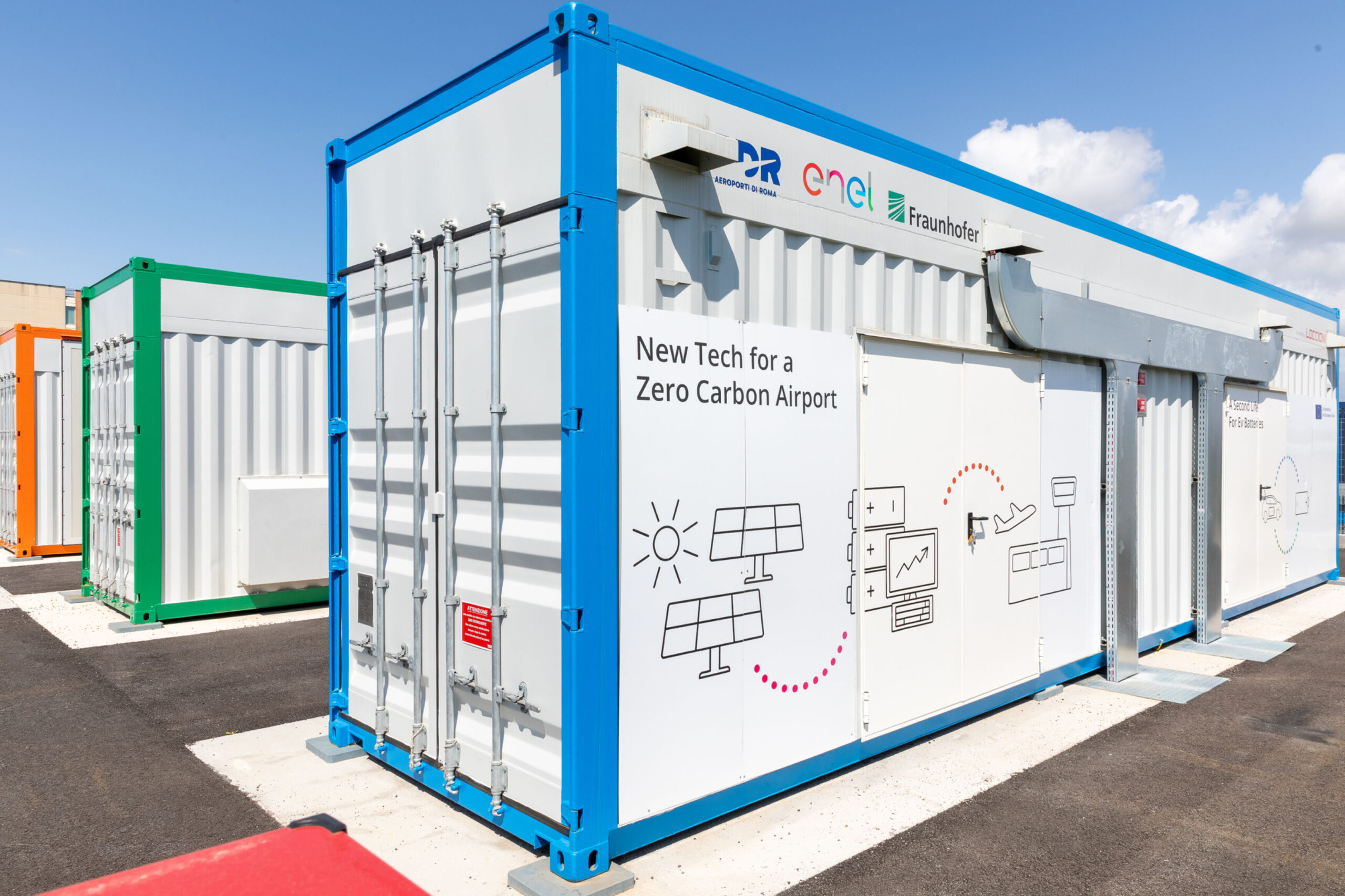- Nissan Energy supports Aeroporti di Roma Fiumicino’s net-zero goals with second-life battery storage.
- 84 Nissan LEAF batteries reconditioned and used to supply 2.1 MWh of energy storage to Enel’s large-scale pioneering system.
- Coupled with the solar farm, the system is expected to generate 31 GWh of renewable electricity per year.
Rome, Italy – Nissan is delivering clean energy at scale through its contribution to a cutting-edge Battery Energy Storage System (BESS) for Aeroporti di Roma’s (ADR) Fiumicino Airport – Italy’s largest international transport hub.
The ‘Pioneer’ initiative, co-funded by EU Innovation Funds, forms part of ADR’s ambition to achieve net-zero emissions by 2030 and demonstrates the potential of ‘end of life’ EV technology to deliver clean, flexible energy beyond its use in vehicles.
In total, the BESS holds a capacity of 10 MWh of electricity. Nissan has supplied 84 second-life Nissan LEAF batteries – totalling 2.1 MWh of energy storage – to system integrator Loccioni, which is responsible for harmonizing them into Enel’s Energy Storage System.
Pioneer is coupled with a Solar Farm of 55,000 solar panels due to generate 31 GWh of renewable energy per year to provide reliable, clean power to the airport terminals, as well as flexible services to the airport grid.
The reused Gen 3 30kWh and Gen 4 40kWh LEAF batteries, sourced from high-mileage vehicles and warranty returns, have been carefully requalified to meet strict safety and performance standards. Nissan predicts the second-life batteries will remain operational for more than 6-7 years at the airport, even when used daily.
Soufiane El Khomri, Nissan Energy Director for the company’s Africa, Middle East, India, Europe and Oceania region (AMIEO), said: “This project not only demonstrates the long-term viability of repurposed EV batteries in demanding environments, but underscores Nissan’s commitment to sustainable end-of-life battery management.
“Our team is involved in the technical integration of second-life batteries into the ESS, the simulation of battery lifespan, and providing warranties for their performance in the new system. Just as importantly, once the batteries reach the end of their useful life on this project, we take full responsibility for their recycling.”
Nissan has a history of successful collaborations with Loccioni and energy provider, Enel. Similar energy storage projects such as the Melilla ESS in Spain and the Nomadic LabAlliance Internal ESS system have proved the effectiveness and reliability of Nissan’s second-life battery technology in providing stable, renewable energy solutions.
El Khomri added, “We are turning potential waste into valuable energy assets. Our re-use strategy not only supports large-scale industrial projects such as Aeorporti di Roma’s Fiumicino Airport, but also shows potential for use in the home such as backup during power cuts.
“As we continue to scale battery reuse and recycling, we are advancing our broader mission toward a cleaner, more energy-efficient future.”
“We are integrators of people, ideas, technologies.”- comments Enrico Loccioni, President and founder of Loccioni – “With Pioneer, we have built a bridge between two worlds on their way to decarbonization: energy and mobility. At the center always remains quality, of people, of projects, of innovations, which is another way of saying sustainability.”
